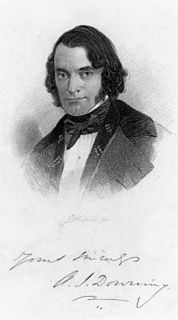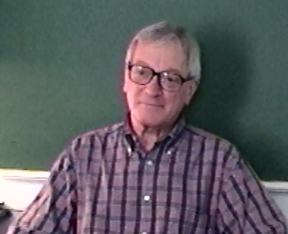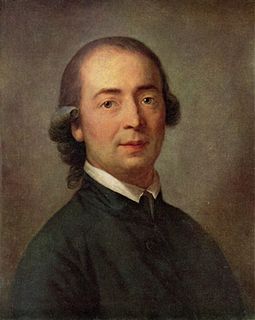A Quote by Henry David Thoreau
Every wild apple shrub excites our expectation thus, somewhat as every wild child. It is, perhaps, a prince in disguise. What a lesson to man! So are human beings, referred to the highest standard, the celestial fruit which they suggest and aspire to bear, browsed on by fate; and only the most persistent and strongest genius defends itself and prevails, sends a tender scion upward at last, and drops its perfect fruit on the ungrateful earth. Poets and philosophers and statesmen thus spring up in the country pastures, and outlast the hosts of unoriginal men.
Quote Topics
Apple
Aspire
Bear
Beings
Celestial
Child
Country
Disguise
Drops
Earth
Every
Excites
Expectation
Fate
Fruit
Genius
Highest
Hosts
Human
Human Being
Human Beings
Itself
Last
Lesson
Man
Men
Most
Only
Our
Outlast
Pastures
Perfect
Perhaps
Persistent
Poets
Prevails
Referred
Sends
Somewhat
Spring
Standard
Statesmen
Strongest
Suggest
Tender
Thus
Ungrateful
Up
Upward
Which
Wild
Wild Child
Related Quotes
The era of wild apples will soon be over. I wander through old orchards of great extent, now all gone to decay, all of native fruit which for the most part went to the cider mill. But since the temperance reform and the general introduction of grafted fruit, no wild apples, such as I see everywhere in deserted pastures, and where the woods have grown up among them, are set out. I fear that he who walks over these hills a century hence will not know the pleasure of knocking off wild apples.
O, mighty, divinely delimited wisdom of walls, boundaries! I is perhaps the most magnificent of all inventions. Man ceased to be a wild animal only when he build the first wall. Men ceased to be a wild man only when we built the Green Wall, only when, by means of that wall, we isolated our perfect machine world from the irrational, ugly world of trees, birds, and animals.
The most perfect philosophy of the natural kind only staves off our ignorance a little longer: as perhaps the most perfect philosophy of the moral or metaphysical kind serves only to discover larger portions of it. Thus the observation of human blindness and weakness is the result of all philosophy, and meets us at every turn, in spite of our endeavours to elude or avoid it.
Nature is a greater and more perfect art, the art of God; though, referred to herself, she is genius; and there is a similarity between her operations and man's art even in the details and trifles. When the overhanging pine drops into the water, by the sun and water, and the wind rubbing it against the shore, its boughs are worn into fantastic shapes, and white and smooth, as if turned in a lathe. Man's art has wisely imitated those forms into which all matter is most inclined to run, as foliage and fruit.
Is not disease the rule of existence? There is not a lily pad floating on the river but has been riddled by insects. Almost every shrub and tree has its gall, oftentimes esteemed its chief ornament and hardly to be distinguished from the fruit. If misery loves company, misery has company enough. Now, at midsummer, find me a perfect leaf or fruit.
So says the most ancient book of the Earth; thus it is written on its leaves of marble, lime, sand, slate, and clay: ... that our Earth has fashioned itself, from its chaos of substances and powers, through the animating warmth of the creative spirit, to a peculiar and original whole, by a series of preparatory revolutions, till at last the crown of its creation, the exquisite and tender creature man, was enabled to appear.
We are not to make the ideas of contentment and aspiration quarrel, for God made them fast friends. A man may aspire, and yet be quite content until it is time to raise; and both flying and resting are but parts of one contentment. The very fruit of the gospel is aspiration. It is to the heart what spring is to the earth, making every root, and bud, and bough desire to be more.
In any activity, we have to know what to expect, how to reach our objectives and what capacity we possess for the proposed task. The only people who can say they have renounced the fruit are those who, thus equipped, feel no desire for the results of the conquest, and remain absorbed in combat. You can renounce the fruit, but this renunciation does not mean indifference toward the result.































